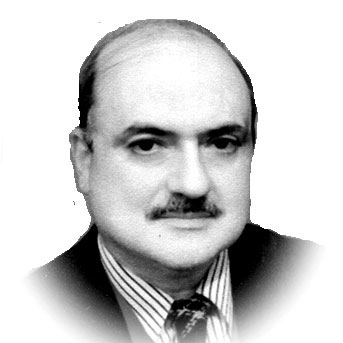Diplomatic life — some vignettes
WHAT follows in this piece is an endeavour to recall some random vignettes of a varied diplomatic life and to present them to the discerning reader without attempting to draw any conclusions.
(1) The period was 1970s and the place was Geneva where one was serving in Pakistan’s Mission to the European Office of the United Nations.
What is now known as Zimbabwe was not yet free of colonial bondage, but things were moving fast towards that coveted goal.
A conference had been convened in Geneva in which all the leaders of the independence struggle had been invited.
One accompanied the Ambassador during calls on each one of those leaders. Mr Mugabe (now President Mugabe) I particularly recall because he was the leader I met more than once.
In the course of the first call, Mr Mugabe had conveyed a message to Islamabad and I was asked to call on him a second time in his hotel room to convey the response of the Pakistan government to his request.
While not in a position to disclose the nature of the request, I can aver that Mr Mugabe’s demeanor when I called on him was unassuming in the extreme and above all gentlemanly.
(2) Around the same time, I had the edifying experience of presiding over a meeting of the UN Committee on Disarmament (then, CCD) in which Mr Garcia Robles, then Foreign Minister of Mexico, was present.
Mr Garcia Robles was perhaps then the most knowledgeable international personality on the issue of disarmament and later went on to win the Nobel Peace Prize.
It was during this meeting that Mr Robles made the inimitable remark that he failed to understand why the world powers wanted to pile up more destructive nuclear weapons when they already possessed the capacity to destroy this world several times over.
He added – tongue in cheek – that he would have thought that destroying the world once should be enough! (3) In 1977, I had the privilege of being elected as Rapporteur of the United Nations Human Rights Commission.
Those were heady years of the Cold War. The Soviet Union was represented by the veteran diplomat Valerin Zorin and the United States by Congressman Lowenstien. The United States was highly perturbed over the Soviet Union’s treatment of its Jewish minority (twelve leaders of the Jews had been detained some weeks earlier).
It was quite an experience to listen to the verbal clashes on the floor of the Commission between these two representatives on this issue. The speech of Mr Zorin during the debate on this issue was an example of old-world oratory of the highest order.
The standard operation procedure (SOP, in military parlance) was that the Secretariat drafted the Report for subsequent presentation by the Rapporteur.
Much to the consternation of the members of the Secretariat, I consciously opted to set aside their draft and instead had personal discussions with each Representative who had participated in the discussions.
I then proceeded to redraft the Report in the light of these discussions. At the closing session, the Report was passed smoothly without any basic amendment. The members of the Secretariat were kind enough to admit that the smooth passage of the Report of the rather stormy session was in itself a remarkable event.
(4) An event worth mention relates to my pre-departure call as Ambassador of Pakistan on the late President Suharto of Indonesia (1991). Bapak Suharto’s was a remarkable personality who left an indelible imprint on all those privileged to meet him.
In the course of the call, the President offered an economic package to Pakistan relating to palm oil that both of us felt would be impossible to refuse.
I shot off an urgent telegram to Headquarters to convey the offer. Regrettably, our officials just brushed it aside. But such frustrations are part of the vagaries of diplomatic life!
(5) Skipping over other vignettes, I should wish to allude to a couple of incidents relating to my stint as the elected Assistant Secretary General of the OIC. The first pertains to the visit to Jeddah of a Minister of the Pakistan government.
The Secretary General of the OIC was on his annual vacation and I was officiating during his absence. The General Secretariat of the OIC received a telephone call from the Pakistan Consulate General in Jeddah requesting appointment for the minister to meet the Secretary General.
The telephonic exchange, as reported by the official who received the call, went something like this:
“I would like to request for a call by the Minister on the Secretary General” “We are afraid the SG is out of the country.
Would you like us to arrange a call on the acting SG?” “Is he an Arab?” “No, he is an Asian. In fact, he is from Pakistan”. (A longish pause followed) “In that case, the call will not be necessary.” End of conversation!
Another incident, in a similar vein, occurred at the time of one of the Ministerial meetings of COMSTECH in Islamabad. I had been deputed by the Secretary-General OIC to represent him at the meeting.
On arrival at Islamabad Airport, seeing on the apron a welcoming party holding up a placard with the words “Welcome to delegates for the COMSTECH meeting”, I walked up to the distinguished bearded gentleman who appeared to be in charge and introduced myself. He showed no interest at all.
When I repeated my story, the bearded one appeared somewhat flustered. In an annoyed tone, he replied, “I heard you the first time. Now go to the lounge and don’t disturb me. Don’t you see I am waiting to receive an Arab dignitary — the Assistant Secretary General of the OIC”.
Finding him totally unresponsive, I thoughtfully made my way to the lounge. I should leave it to the gentle reader to draw his or her own conclusions.
— The writer is a former Ambassador and former Assistant Secretary General of OIC.










